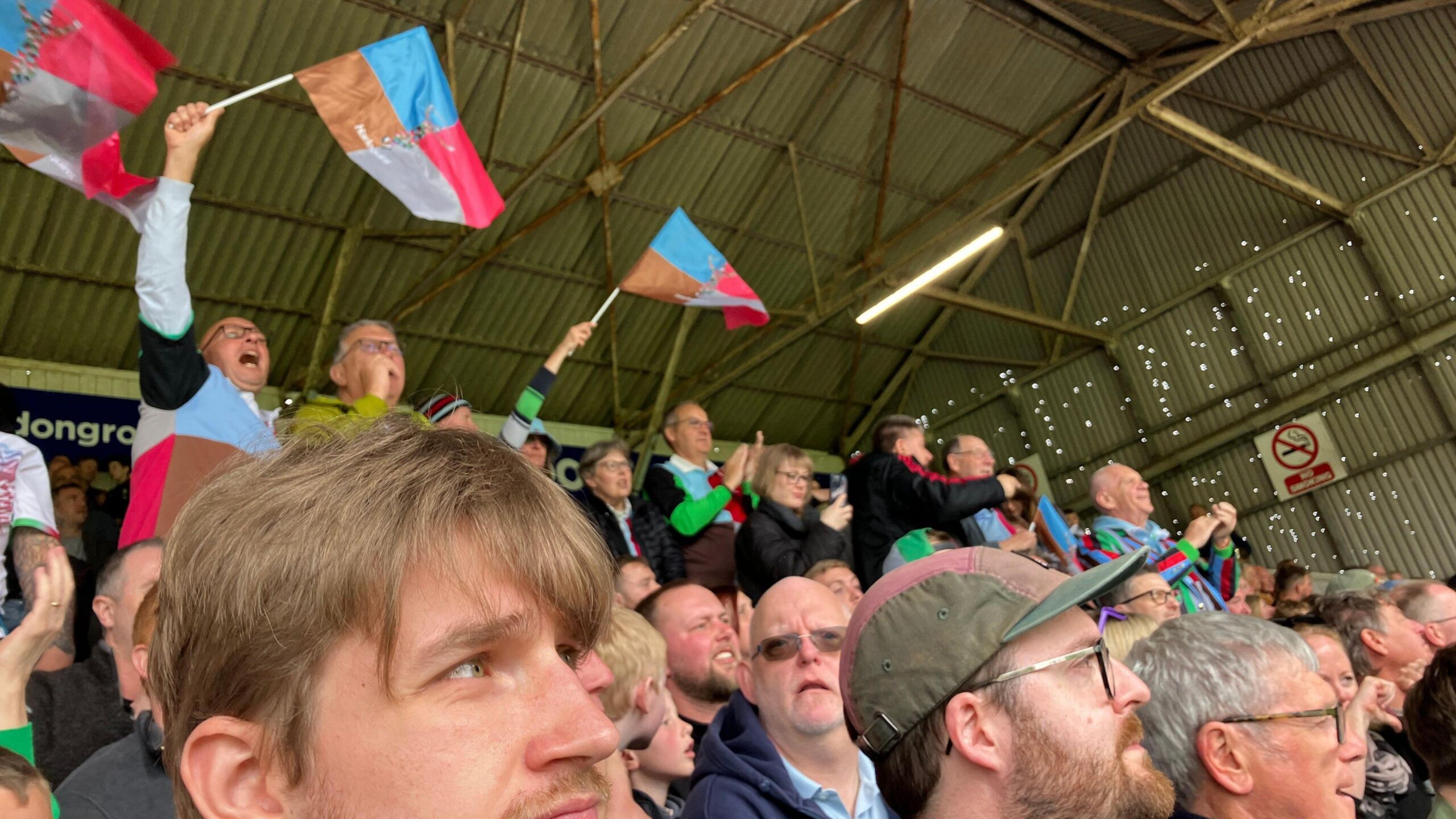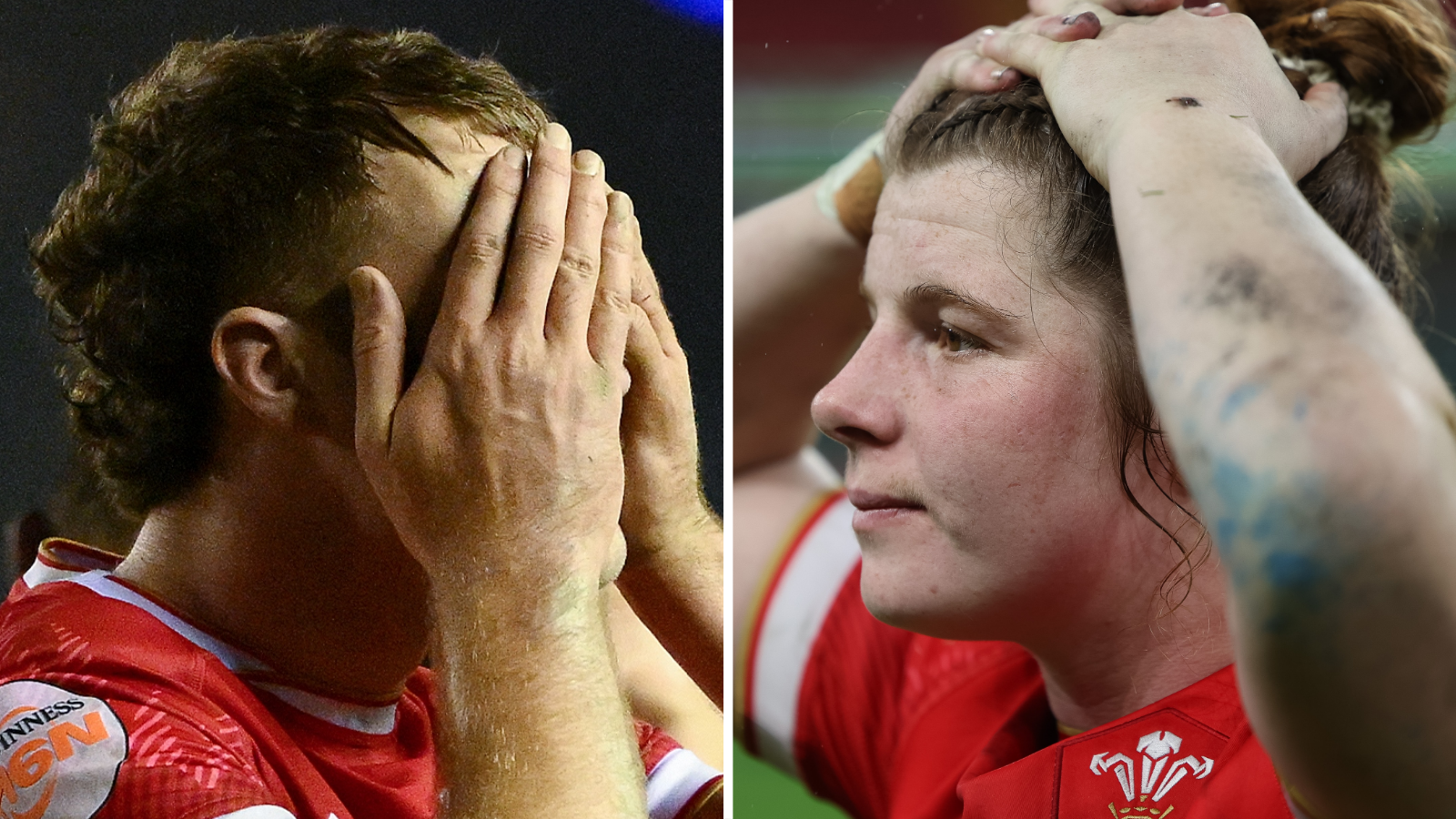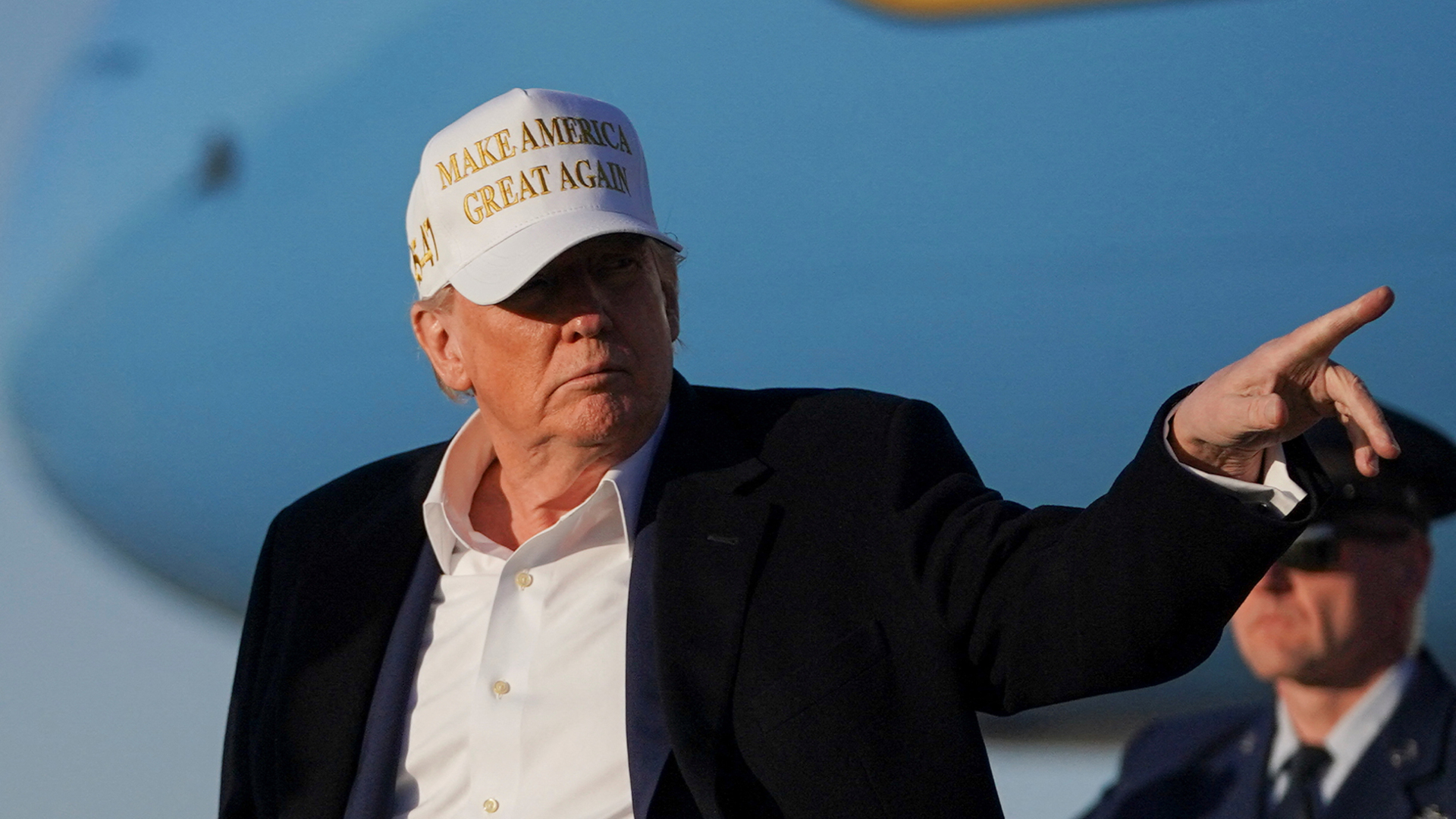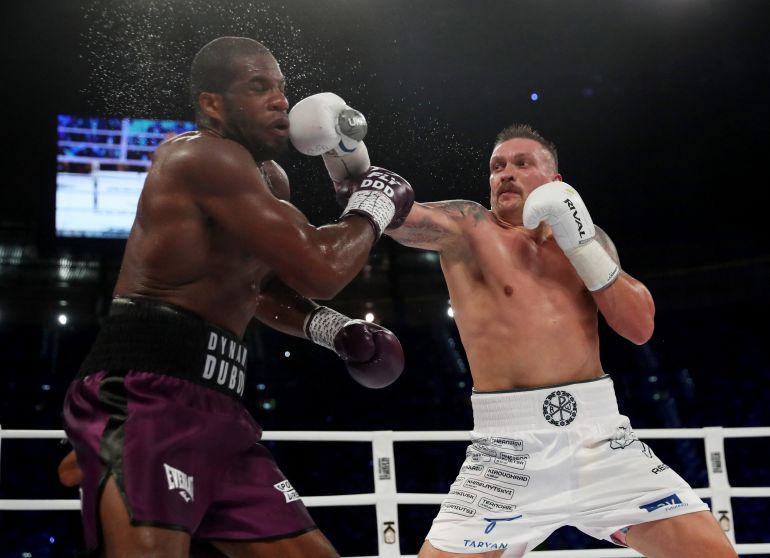- 19 Comments
The referee initially allowing a Leicester try despite a clear knock-on in the build-up. Harlequins wing Cameron Anderson, concussed on the floor, being shown a red card. England team-mates Alex Dombrandt and Ollie Chessum squaring up.
There were plenty of flashpoints at Mattioli Woods Welford Road on Saturday.
Yet the dedicated away fans section stubbornly refused to ignite into more than mild frustration.
On the fringes, where Richard Buck, sporting a Harlequins’ striped blazer, and Phil Ellis, a slightly bewildered Leicester season ticket holder of 16 years, sat side by side, the only thing lobbed between the two were pleasantries and cheery small talk.
“I’ve been a bit ambused by this today,” Ellis smiled. “You usually get the odd smattering of away fans but this is a bit more concentrated than normal.”

‘Away ends arrive in rugby’ shouted the headlines – including our’s – last month when Premiership Rugby last announced two trial matches with specified areas for visiting supporters.
It is a story with couple of caveats though.
Firstly, they aren’t really away ends. At least certainly not the aggro-and-pyro, strict segregation scenario the phrase brings to mind in this country.
Fans are not kept apart. And neither are they forced to sit with their own tribe. The option to mix in with the hosts is still there and taken by many.
And, secondly, away ends haven’t just arrived in rugby. Travelling fan groups have been block-booking sections of opposition stands off their own backs for decades.
Quinssa – Harlequins’ supporters association – are one of the most proactive.
They have concentrated more than a thousand fans together on European jaunts, where ticket offices are more accommodating and the idea of any travelling fans is novel.
Their members, given a dedicated area because of Covid restrictions of the time, helped inspire their team’s semi-final comeback against Bristol at Ashton Gate in 2021.

“It is a great initiative,” said Leicester chief executive Andrea Pinchen, playing host.
“We want to be innovative, we want to try new things and it adds to the atmosphere with fans of both sides getting louder and louder,”
Her Quins counterpart Laurie Dalrymple, who was previously managing director of Premier League football side Wolves, agrees.
“It isn’t the catch-all that is going to fix all the challenges we have had in our sport over the past few years, but not necessarily about that,” he said.
The BBC is not responsible for the content of external sites.
Allow X content?
The BBC is not responsible for the content of external sites.
There was certainly a diversity of opinions in the stands.
Neither Buck or Ellis thought it was necessary.
“We all should mix,” said Ellis. “I have been all over the country with Leicester and I don’t want to particularly sit with Leicester fans, I just go and look for the best seat!”
Elsewhere, there was support.
“If you are with people you know, who support the same team, you are going to be more confident,” said Megan Schroeder.
“You are going to chant more, you are going to sing more, there is more hype and enjoyment.
“Whereas if you are just surrounded by opposition fans, it makes you think you might just sit and be quiet.

“I am all for it,” added Brandon Wells.
“It builds the atmosphere, and you are more inclined to travel if you are sat with people you know and you can sing the same songs.
“I am worried our game is going to die. We need to grow the game and this is a step in the right direction.”
Nick and Joel Baker, attending with their Leicester-supporting partners and sat among the Tigers fans, summed up the split.
“I am a bit more old school,” said Nick. “I like mixing in together and having a laugh and a bit of fun. There is never any nastiness at rugby, it’s not like football where you need the segregation. I am not a great fan of it, to be honest.”
“I think it is good to have the option,” said Joel. “If you support a club and now live in a different part of the country, it is nice to sit in with your fellow fans.

As Leicester’s lead stretched out in the second half, the volume dipped on the London voices though.
The lowing sound of ‘C’mon you Quins’ and more youthful chanting of star fly-half Marcus Smith’s name become less frequent and more quiet.
Only 500-odd strong, Harlequins fans were unlikely to break through often, even if the match had been more even.
By contrast, Gloucester’s fans, congregated in the more sparsely-attended Stonex Stadium for last weekend’s first trial match, made their presence felt and voices heard with some pithy chants about the deficiencies of London life and Saracens fly-half Fergus Burke.
Whatever Burke made of it, other players have been supportive of the idea.
Harlequins flanker Will Evans, who has spoken about the benefits of away support for visiting teams and the league as a whole, notably offered up applause to the Quins section.
Leicester’s players also relish focused pockets of support when on the road, according to Pinchen.
Whether they will see more of it on next season’s travels will depend on how Premiership Rugby, who will rebrand the competition for the next campaign, and its clubs’ leaders, not all of whom have initially been keen, assess these two experiments.
Related topics
- Rugby Union
- Leicester Tigers
- Harlequins










